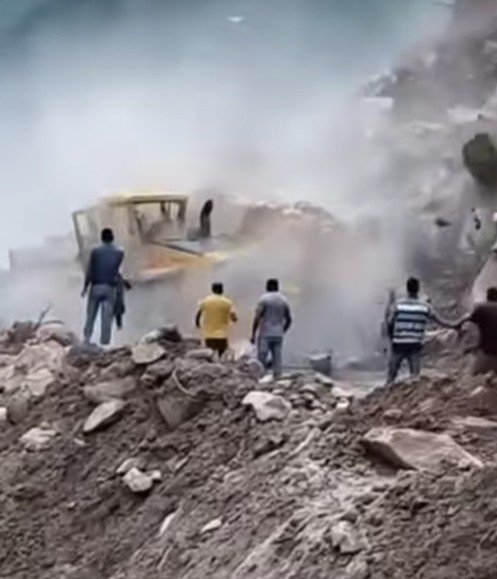Even as Himachal Pradesh reels under the fury of floods and landslides, a worrying spike in crime has emerged, adding a new dimension to the state’s unfolding crisis. With law enforcement agencies stretched thin due to rescue and relief operations, reports of theft, black-marketing, and opportunistic crime have begun to surface across multiple districts. Police officials in Shimla, Kangra, and Mandi confirmed a series of incidents ranging from the looting of abandoned homes to the hoarding of essential supplies, leaving residents even more vulnerable in an already distressing situation.
In the flood-ravaged belt of Mandi, police received multiple complaints of valuables stolen from evacuated houses. Families who had fled to relief camps returned to find doors broken and belongings missing. Similar cases were reported in Kullu, where electronic goods and cash were targeted by miscreants who took advantage of deserted neighborhoods. Black-marketing of food items, medicines, and even bottled water has also been reported, with prices doubling or tripling in some pockets. Officials admitted that controlling this wave of opportunism has become difficult as most security forces are deployed in joint rescue missions alongside the NDRF and the Army.
The spike in crime has also raised concerns about the safety of women and children in overcrowded relief shelters. NGOs working in Kangra and Solan reported instances of harassment, prompting the police to increase patrols in and around the camps. The Himachal Pradesh Police have set up quick response teams to handle criminal activity in disaster-hit zones, but challenges remain high given the limited mobility caused by damaged roads and communication breakdowns. In certain areas, villagers themselves have begun night patrols to protect property and distribute relief material fairly.
Chief Minister Sukhvinder Singh Sukhu addressed the issue on Monday, acknowledging the strain on policing and announcing that 10 additional companies of the Himachal Armed Police had been deployed to assist local law enforcement in maintaining order. He warned that strict action would be taken against those indulging in hoarding or exploiting the disaster. Special helplines have been launched for residents to report thefts, harassment, and black-marketing directly to the district control rooms.
Meanwhile, opposition leaders have criticized the government for failing to anticipate this secondary crisis, pointing out that every major natural disaster tends to be followed by a surge in criminal activity if not proactively checked. They have demanded better surveillance, including drone monitoring of vulnerable areas and stricter enforcement against traders hiking prices. Civil society organizations have also appealed for a stronger community-based approach, urging citizens to report offenders and help ensure equitable relief distribution.
For residents already grappling with the loss of homes, livelihoods, and loved ones, the rise in crime has compounded a sense of insecurity. The combination of natural disaster and human exploitation has cast a shadow on the spirit of resilience that Himachal is known for. While rescue teams continue to save lives from floodwaters, the administration now faces the dual challenge of also protecting citizens from opportunistic elements who are exploiting the crisis. The days ahead will test not just the state’s disaster response but also its ability to safeguard law and order in the most trying of circumstances.
This is a web generated news report.





